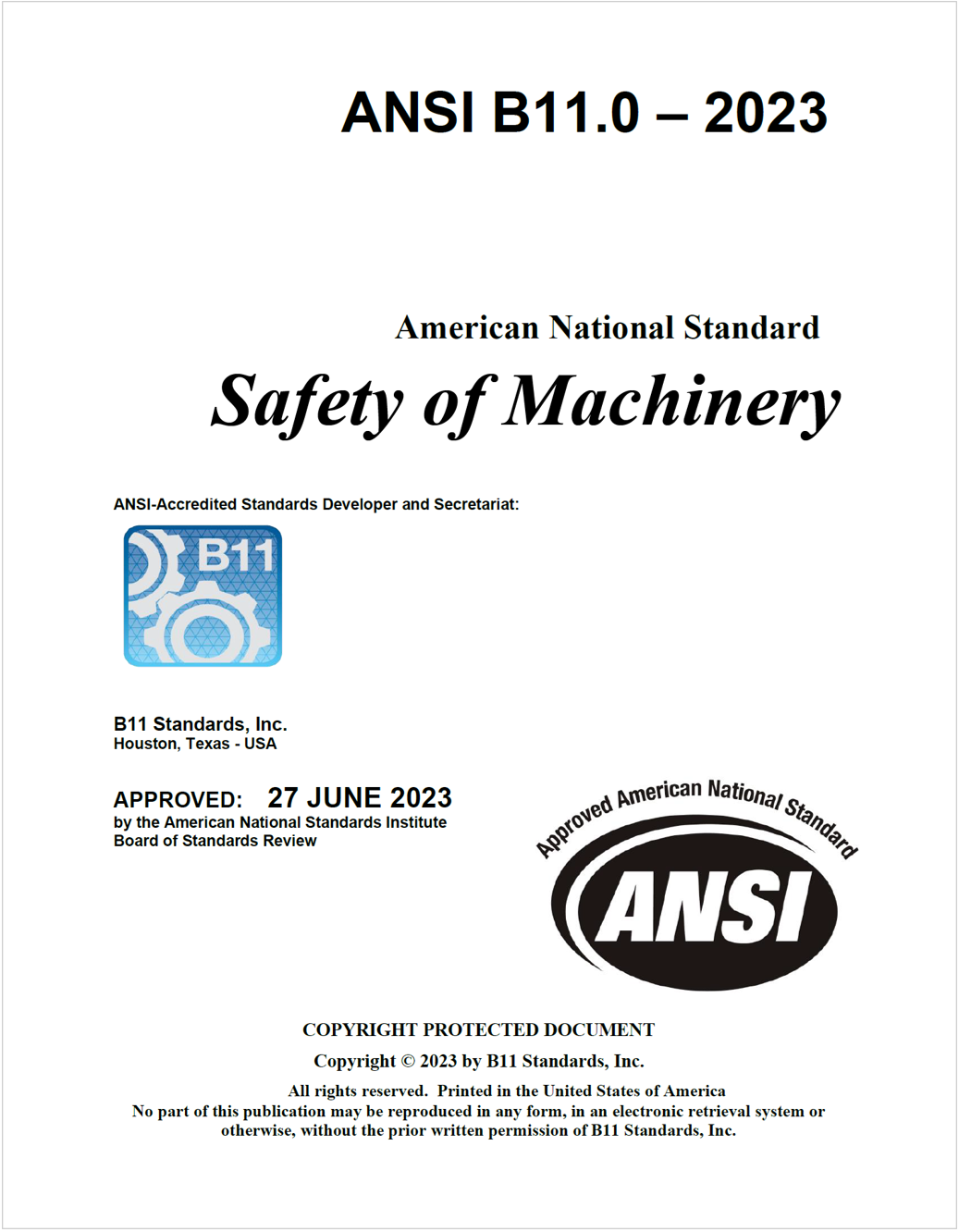| 1 x afterRenderRawModule mod_menu (Temi) (293.11KB) (13.51%) | 39.39ms |
| 1 x afterInitialise (3.43MB) (10.87%) | 31.67ms |
| 1 x Before Access::getAssetRules (id:8 name:com_content) (435.22KB) (10.21%) | 29.76ms |
| 1 x afterRenderRawModule mod_menu (Main Menu) (21.23KB) (9.99%) | 29.13ms |
| 1 x After Access::preloadPermissions (com_content) (16.82MB) (9.82%) | 28.63ms |
| 1 x afterRender (1.09MB) (9.57%) | 27.90ms |
| 1 x afterRenderComponent com_content (81.72KB) (8.89%) | 25.90ms |
| 1 x beforeRenderRawModule mod_login (Accedi all'area riservata) (1.75MB) (4.87%) | 14.18ms |
| 1 x afterRoute (251.04KB) (2.18%) | 6.35ms |
| 1 x afterRenderRawModule mod_menu (Documenti Abbonati) (179.28KB) (2.16%) | 6.29ms |
| 1 x afterRenderRawModule mod_menu (Top Menu) (31.08KB) (1.53%) | 4.46ms |
| 1 x afterRenderRawModule mod_menu (Policies) (23.48KB) (1.43%) | 4.17ms |
| 1 x afterLoad (84.27KB) (1.39%) | 4.05ms |
| 1 x Before Access::preloadComponents (all components) (41.5KB) (1.36%) | 3.98ms |
| 1 x afterRenderRawModule mod_menu (Marketing) (20.39KB) (1.25%) | 3.65ms |
| 1 x beforeRenderRawModule mod_menu (Main Menu) (33.91KB) (1.18%) | 3.44ms |
| 1 x afterRenderRawModule mod_menu (Store) (17.13KB) (1.06%) | 3.10ms |
| 1 x afterRenderRawModule mod_menu (Social) (60.09KB) (1.06%) | 3.09ms |
| 1 x afterRenderRawModule mod_menu (Media) (14.41KB) (0.92%) | 2.68ms |
| 1 x afterRenderRawModule mod_login (Accedi all'area riservata) (80.42KB) (0.89%) | 2.60ms |
| 1 x afterRenderRawModule mod_menu (Info) (11.67KB) (0.73%) | 2.14ms |
| 1 x beforeRenderComponent com_content (65.78KB) (0.45%) | 1.32ms |
| 1 x Before Access::getAssetRules (id:1000685 name:com_attachments) (73.97KB) (0.37%) | 1.09ms |
| 1 x afterRenderModule mod_menu (Main Menu) (11.27KB) (0.2%) | 597μs |
| 1 x Before Access::getAssetRules (id:40742 name:com_content.article.20045) (514.65KB) (0.19%) | 546μs |
| 1 x After Access::preloadComponents (all components) (115.88KB) (0.17%) | 509μs |
| 1 x afterRenderModule mod_custom (Certifico s.r.l.) (3.36KB) (0.17%) | 502μs |
| 1 x afterRenderModule mod_menu (Temi) (22.67KB) (0.17%) | 500μs |
| 1 x afterRenderModule mod_menu (Policies) (3.3KB) (0.17%) | 499μs |
| 1 x afterRenderModule mod_menu (Documenti Abbonati) (4.19KB) (0.17%) | 497μs |
| 1 x afterRenderModule mod_menu (Social) (3.92KB) (0.17%) | 495μs |
| 1 x afterRenderModule mod_menu (Media) (4.36KB) (0.17%) | 493μs |
| 1 x afterRenderModule mod_menu (Store) (3.3KB) (0.17%) | 493μs |
| 1 x afterRenderModule mod_menu (Info) (3.05KB) (0.17%) | 488μs |
| 1 x afterRenderModule mod_menu (Marketing) (3.3KB) (0.17%) | 484μs |
| 1 x afterRenderModule mod_custom (Titolo Predefinito) (3.23KB) (0.17%) | 484μs |
| 1 x afterRenderRawModule mod_custom (Certifico s.r.l.) (4.22KB) (0.16%) | 473μs |
| 1 x beforeRenderRawModule mod_menu (Social) (41.4KB) (0.13%) | 385μs |
| 1 x afterDispatch (3.06KB) (0.13%) | 370μs |
| 1 x afterRenderModule mod_login (Accedi all'area riservata) (5.95KB) (0.11%) | 310μs |
| 1 x After Access::getAssetRules (id:40742 name:com_content.article.20045) (12.67KB) (0.09%) | 258μs |
| 1 x afterRenderModule mod_custom (Regolamento Macchine) (5.08KB) (0.07%) | 203μs |
| 1 x afterRenderRawModule mod_custom (Titolo Predefinito) (1.03KB) (0.04%) | 112μs |
| 1 x afterRenderRawModule mod_custom (Regolamento Macchine) (1.03KB) (0.04%) | 104μs |
| 1 x afterRenderRawModule mod_custom (D. Lgs. 81/2008 - TUSSL) (928B) (0.03%) | 86μs |
| 1 x afterRenderRawModule mod_custom (Certifico ADR) (1.02KB) (0.03%) | 84μs |
| 1 x afterRenderRawModule mod_custom (Codice Prevenzione Incendi | RTO II) (928B) (0.03%) | 82μs |
| 1 x afterRenderRawModule mod_custom (TUA | Testo Unico Ambiente) (928B) (0.03%) | 82μs |
| 1 x afterRenderRawModule mod_custom (TUSSL / Link) (976B) (0.03%) | 82μs |
| 1 x afterRenderRawModule mod_custom (Glossario Certifico HSE) (1.03KB) (0.03%) | 82μs |
| 1 x afterRenderRawModule mod_custom (Abbonamento Full Plus) (912B) (0.03%) | 82μs |
| 1 x afterRenderRawModule mod_custom (Direttiva macchine e norme armonizzate) (1.05KB) (0.03%) | 81μs |
| 1 x afterRenderRawModule mod_custom (Codice Unico Sicurezza) (928B) (0.03%) | 81μs |
| 1 x afterRenderModule mod_menu (Top Menu) (4.11KB) (0.03%) | 81μs |
| 1 x afterRenderRawModule mod_custom (D. Lgs. 196/2003 - Codice protezione dati personali | GDPR) (960B) (0.03%) | 81μs |
| 1 x afterRenderRawModule mod_custom (Food Safety book) (1.02KB) (0.03%) | 81μs |
| 1 x afterRenderRawModule mod_custom (D. Lgs. 101/2020 - Protezione esposizione radiazioni ionizzanti) (960B) (0.03%) | 80μs |
| 1 x afterRenderRawModule mod_custom (DM 21 Marzo 1973 | MOCA IT) (1.03KB) (0.03%) | 80μs |
| 1 x afterRenderRawModule mod_custom (Abbonamento Full) (912B) (0.03%) | 80μs |
| 1 x afterRenderRawModule mod_custom (CEM4 || Ultimo aggiornamento) (1.03KB) (0.03%) | 80μs |
| 1 x afterRenderRawModule mod_custom (D. Lgs. 231/2001 - Responsabilità amministrativa enti) (960B) (0.03%) | 80μs |
| 1 x afterRenderRawModule mod_custom (MEPA) (960B) (0.03%) | 80μs |
| 1 x afterRenderRawModule mod_custom (MOCA - GMP | Consolidato) (1.03KB) (0.03%) | 79μs |
| 1 x afterRenderRawModule mod_custom (Store Certifico) (976B) (0.03%) | 78μs |
| 1 x afterRenderModule mod_custom (D. Lgs. 81/2008 - TUSSL) (6.52KB) (0.02%) | 72μs |
| 1 x afterRenderModule mod_custom (Direttiva macchine e norme armonizzate) (4.16KB) (0.02%) | 67μs |
| 1 x afterRenderModule mod_custom (MEPA) (3.75KB) (0.02%) | 67μs |
| 1 x afterRenderModule mod_custom (Codice Prevenzione Incendi | RTO II) (4.16KB) (0.02%) | 66μs |
| 1 x afterRenderModule mod_custom (TUSSL / Link) (3.64KB) (0.02%) | 65μs |
| 1 x afterRenderModule mod_custom (Glossario Certifico HSE) (3.77KB) (0.02%) | 65μs |
| 1 x afterRenderModule mod_custom (Codice Unico Sicurezza) (4.02KB) (0.02%) | 65μs |
| 1 x afterRenderModule mod_custom (DM 21 Marzo 1973 | MOCA IT) (4.03KB) (0.02%) | 65μs |
| 1 x afterRenderModule mod_custom (Abbonamento Full) (4.89KB) (0.02%) | 65μs |
| 1 x afterRenderModule mod_custom (Abbonamento Full Plus) (4.14KB) (0.02%) | 65μs |
| 1 x afterRenderModule mod_custom (CEM4 || Ultimo aggiornamento) (3.91KB) (0.02%) | 64μs |
| 1 x afterRenderModule mod_custom (TUA | Testo Unico Ambiente) (4.03KB) (0.02%) | 64μs |
| 1 x afterRenderModule mod_custom (D. Lgs. 196/2003 - Codice protezione dati personali | GDPR) (4.44KB) (0.02%) | 64μs |
| 1 x afterRenderModule mod_custom (D. Lgs. 101/2020 - Protezione esposizione radiazioni ionizzanti) (4.44KB) (0.02%) | 64μs |
| 1 x afterRenderModule mod_custom (MOCA - GMP | Consolidato) (4.02KB) (0.02%) | 64μs |
| 1 x afterRenderModule mod_custom (Store Certifico) (14.58KB) (0.02%) | 64μs |
| 1 x afterRenderModule mod_custom (D. Lgs. 231/2001 - Responsabilità amministrativa enti) (4.42KB) (0.02%) | 63μs |
| 1 x afterRenderModule mod_custom (Certifico ADR) (3.89KB) (0.02%) | 63μs |
| 1 x afterRenderModule mod_custom (Food Safety book) (4.02KB) (0.02%) | 63μs |
| 1 x After Access::getAssetRules (id:8 name:com_content) (11.51KB) (0.02%) | 49μs |
| 1 x beforeRenderRawModule mod_menu (Top Menu) (2.47KB) (0.02%) | 49μs |
| 1 x After Access::getAssetRules (id:1000685 name:com_attachments) (10.59KB) (0.01%) | 33μs |
| 1 x beforeRenderRawModule mod_custom (Titolo Predefinito) (2.1KB) (0.01%) | 26μs |
| 1 x beforeRenderRawModule mod_menu (Policies) (616B) (0.01%) | 24μs |
| 1 x beforeRenderRawModule mod_menu (Info) (440B) (0.01%) | 23μs |
| 1 x beforeRenderRawModule mod_menu (Temi) (904B) (0.01%) | 23μs |
| 1 x beforeRenderRawModule mod_menu (Documenti Abbonati) (1.96KB) (0.01%) | 22μs |
| 1 x beforeRenderRawModule mod_custom (Certifico s.r.l.) (2.29KB) (0.01%) | 22μs |
| 1 x Before Access::getAssetRules (id:1 name:root.1) (760B) (0.01%) | 18μs |
| 1 x Before Access::preloadPermissions (com_content) (1.51KB) (0%) | 10μs |
| 1 x beforeRenderRawModule mod_menu (Marketing) (896B) (0%) | 8μs |
| 1 x beforeRenderRawModule mod_custom (Regolamento Macchine) (2.55KB) (0%) | 8μs |
| 1 x beforeRenderRawModule mod_menu (Media) (912B) (0%) | 8μs |
| 1 x beforeRenderRawModule mod_menu (Store) (912B) (0%) | 8μs |
| 1 x beforeRenderRawModule mod_custom (D. Lgs. 81/2008 - TUSSL) (512B) (0%) | 7μs |
| 1 x beforeRenderRawModule mod_custom (TUA | Testo Unico Ambiente) (1.38KB) (0%) | 6μs |
| 1 x beforeRenderRawModule mod_custom (Codice Prevenzione Incendi | RTO II) (1.75KB) (0%) | 6μs |
| 1 x After Access::getAssetRules (id:1 name:root.1) (1.28KB) (0%) | 5μs |
| 1 x beforeRenderRawModule mod_custom (TUSSL / Link) (1.48KB) (0%) | 5μs |
| 1 x beforeRenderRawModule mod_custom (Glossario Certifico HSE) (2.38KB) (0%) | 5μs |
| 1 x beforeRenderRawModule mod_custom (CEM4 || Ultimo aggiornamento) (2KB) (0%) | 5μs |
| 1 x beforeRenderRawModule mod_custom (D. Lgs. 231/2001 - Responsabilità amministrativa enti) (2.09KB) (0%) | 5μs |
| 1 x beforeRenderRawModule mod_custom (D. Lgs. 196/2003 - Codice protezione dati personali | GDPR) (2.22KB) (0%) | 5μs |
| 1 x beforeRenderRawModule mod_custom (D. Lgs. 101/2020 - Protezione esposizione radiazioni ionizzanti) (1.28KB) (0%) | 5μs |
| 1 x beforeRenderRawModule mod_custom (Direttiva macchine e norme armonizzate) (2.73KB) (0%) | 5μs |
| 1 x beforeRenderRawModule mod_custom (MEPA) (1.95KB) (0%) | 5μs |
| 1 x beforeRenderRawModule mod_custom (Certifico ADR) (2.77KB) (0%) | 4μs |
| 1 x beforeRenderRawModule mod_custom (MOCA - GMP | Consolidato) (2.5KB) (0%) | 4μs |
| 1 x beforeRenderRawModule mod_custom (Codice Unico Sicurezza) (2.25KB) (0%) | 4μs |
| 1 x beforeRenderRawModule mod_custom (Abbonamento Full Plus) (2.38KB) (0%) | 4μs |
| 1 x beforeRenderRawModule mod_custom (Store Certifico) (3.27KB) (0%) | 4μs |
| 1 x beforeRenderRawModule mod_custom (Food Safety book) (1.48KB) (0%) | 4μs |
| 1 x beforeRenderRawModule mod_custom (DM 21 Marzo 1973 | MOCA IT) (1.63KB) (0%) | 4μs |
| 1 x beforeRenderRawModule mod_custom (Abbonamento Full) (2.39KB) (0%) | 4μs |
| 1 x beforeRenderModule mod_menu (Main Menu) (704B) (0%) | 3μs |
| 1 x beforeRenderModule mod_menu (Social) (704B) (0%) | 2μs |
| 1 x beforeRenderModule mod_menu (Media) (704B) (0%) | 2μs |
| 1 x beforeRenderModule mod_menu (Policies) (704B) (0%) | 2μs |
| 1 x beforeRenderModule mod_menu (Store) (704B) (0%) | 2μs |
| 1 x beforeRenderModule mod_custom (Certifico s.r.l.) (720B) (0%) | 2μs |
| 1 x beforeRenderModule mod_menu (Documenti Abbonati) (720B) (0%) | 2μs |
| 1 x beforeRenderModule mod_login (Accedi all'area riservata) (736B) (0%) | 2μs |
| 1 x beforeRenderModule mod_menu (Info) (704B) (0%) | 2μs |
| 1 x beforeRenderModule mod_menu (Marketing) (704B) (0%) | 2μs |
| 1 x beforeRenderModule mod_custom (Regolamento Macchine) (720B) (0%) | 2μs |
| 1 x beforeRenderModule mod_custom (D. Lgs. 81/2008 - TUSSL) (720B) (0%) | 2μs |
| 1 x beforeRenderModule mod_menu (Temi) (704B) (0%) | 2μs |
| 1 x beforeRenderModule mod_menu (Top Menu) (704B) (0%) | 2μs |
| 1 x beforeRenderModule mod_custom (Codice Prevenzione Incendi | RTO II) (736B) (0%) | 1μs |
| 1 x beforeRenderModule mod_custom (D. Lgs. 196/2003 - Codice protezione dati personali | GDPR) (768B) (0%) | 1μs |
| 1 x beforeRenderModule mod_custom (Store Certifico) (720B) (0%) | 1μs |
| 1 x beforeRenderModule mod_custom (Food Safety book) (720B) (0%) | 1μs |
| 1 x beforeRenderModule mod_custom (MEPA) (704B) (0%) | 1μs |
| 1 x beforeRenderModule mod_custom (Titolo Predefinito) (720B) (0%) | 1μs |
| 1 x beforeRenderModule mod_custom (TUA | Testo Unico Ambiente) (736B) (0%) | 1μs |
| 1 x beforeRenderModule mod_custom (TUSSL / Link) (720B) (0%) | 1μs |
| 1 x beforeRenderModule mod_custom (Glossario Certifico HSE) (720B) (0%) | 1μs |
| 1 x beforeRenderModule mod_custom (CEM4 || Ultimo aggiornamento) (736B) (0%) | 1μs |
| 1 x beforeRenderModule mod_custom (D. Lgs. 231/2001 - Responsabilità amministrativa enti) (752B) (0%) | 1μs |
| 1 x beforeRenderModule mod_custom (D. Lgs. 101/2020 - Protezione esposizione radiazioni ionizzanti) (768B) (0%) | 1μs |
| 1 x beforeRenderModule mod_custom (Certifico ADR) (720B) (0%) | 1μs |
| 1 x beforeRenderModule mod_custom (MOCA - GMP | Consolidato) (736B) (0%) | 1μs |
| 1 x beforeRenderModule mod_custom (Codice Unico Sicurezza) (720B) (0%) | 1μs |
| 1 x beforeRenderModule mod_custom (DM 21 Marzo 1973 | MOCA IT) (736B) (0%) | 1μs |
| 1 x beforeRenderModule mod_custom (Abbonamento Full) (720B) (0%) | 1μs |
| 1 x beforeRenderModule mod_custom (Abbonamento Full Plus) (720B) (0%) | 1μs |
| 1 x beforeRenderModule mod_custom (Direttiva macchine e norme armonizzate) (736B) (0%) | 0μs |




















